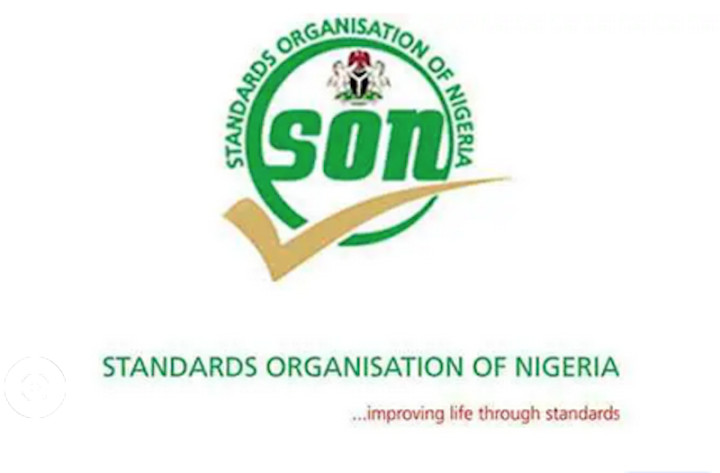The Standards Organisation of Nigeria (SON) has officially launched the adoption of ISO 37003, a global standard designed to strengthen fraud control mechanisms in both public and private institutions across the country. The new framework, unveiled at a stakeholders’ forum in Abuja, represents a significant step in Nigeria’s ongoing battle against corruption, financial malpractice, and organizational fraud, which have long hampered development and weakened public confidence in institutions.
According to SON, the ISO 37003 standard offers organizations a structured approach to identify, assess, and mitigate fraud risks while fostering a culture of transparency and accountability. It provides guidelines for establishing robust anti-fraud systems, conducting effective risk assessments, and building mechanisms to detect irregularities before they escalate into damaging crises. Officials stressed that the standard is applicable to entities of all sizes, from government agencies and financial institutions to small businesses and non-governmental organizations.

Speaking at the unveiling, SON’s Director-General, Dr. Ifeanyi Okeke, described the introduction of ISO 37003 as timely, particularly given the rise of sophisticated financial crimes and the increasing need for organizations to align with international best practices. He explained that the framework is not just about compliance but about embedding proactive systems that protect resources, strengthen governance, and enhance Nigeria’s global reputation as a trustworthy investment destination.
The DG highlighted that fraud remains one of the most pressing challenges in Nigeria, costing the country billions annually in lost revenue and reduced investor confidence. He argued that by adopting ISO 37003, organizations would be better positioned to plug loopholes, detect early warning signs, and respond effectively to fraud risks. Okeke further noted that the standard complements Nigeria’s broader reforms around corporate governance, digital transformation, and anti-corruption initiatives being pursued by various agencies.
Stakeholders at the event welcomed the move, with representatives from the banking, oil and gas, telecommunications, and public service sectors pledging support for widespread implementation. The Chartered Institute of Bankers of Nigeria described ISO 37003 as a potential game-changer for the financial sector, where fraud and cybercrime have been persistent threats. Similarly, civil society groups praised SON for aligning Nigeria with global benchmarks, noting that transparency standards are critical to unlocking donor support and attracting foreign direct investment.
The unveiling also featured technical sessions where SON experts explained the framework’s core elements, including fraud risk assessment, internal controls, employee training, whistleblowing mechanisms, and monitoring systems. They stressed that ISO 37003 encourages organizations to go beyond box-ticking compliance and instead develop dynamic fraud management strategies tailored to their specific risks and operational realities. The standard is designed to be integrated into broader risk management systems, ensuring it becomes part of organizational DNA rather than a stand-alone initiative.
Government officials present at the launch emphasized that Nigeria cannot achieve sustainable growth without addressing systemic fraud. Representatives from the Ministry of Industry, Trade, and Investment described the standard as a tool that would help protect national resources, safeguard public sector reforms, and ensure value-for-money in government projects. They urged both public and private institutions to embrace the framework fully, highlighting that compliance would soon be factored into procurement processes and regulatory assessments.
However, experts cautioned that effective implementation would require more than just formal adoption. They stressed the importance of continuous training, investment in technology, and leadership commitment to ensure fraud control systems are not undermined by weak enforcement or cultural resistance. Concerns were also raised about smaller organizations, which may struggle with the costs of implementation. SON responded by assuring that it would provide technical support, capacity building, and phased implementation guidelines to make adoption more feasible across sectors.
Analysts note that the launch of ISO 37003 comes at a crucial moment, as Nigeria works to strengthen its financial integrity amid global scrutiny. With increasing pressure from international partners for transparency in governance and business practices, adopting internationally recognized standards sends a positive signal to investors. Experts believe it could also help Nigeria’s financial institutions meet compliance requirements in global markets, boosting competitiveness and trustworthiness.
The unveiling marks another milestone in SON’s expanding portfolio of international standards domestication, following earlier adoptions in areas such as environmental management, food safety, and occupational health. By prioritizing fraud control, the agency underscores the recognition that integrity in systems and processes is just as important as technical quality standards.
As implementation begins, the success of ISO 37003 will ultimately depend on how quickly and effectively organizations integrate the framework into their operations. For many Nigerians, the hope is that this move will translate into tangible results: fewer fraud scandals, stronger corporate governance, and a more resilient economy.
In the months ahead, SON has pledged to roll out nationwide sensitization programs, certification schemes, and compliance audits to drive adoption and ensure organizations do not only sign up but also put the principles into practice. For now, the unveiling of ISO 37003 represents a fresh commitment to strengthening Nigeria’s fight against fraud, offering a roadmap to protect resources, build trust, and enhance accountability across all sectors.
Support InfoStride News' Credible Journalism: Only credible journalism can guarantee a fair, accountable and transparent society, including democracy and government. It involves a lot of efforts and money. We need your support. Click here to Donate
